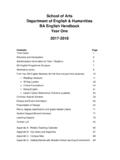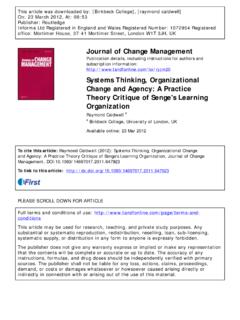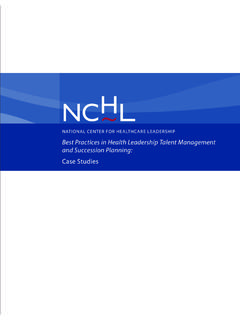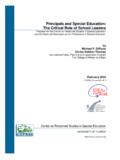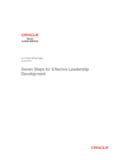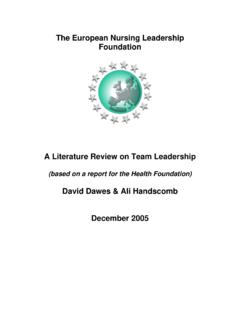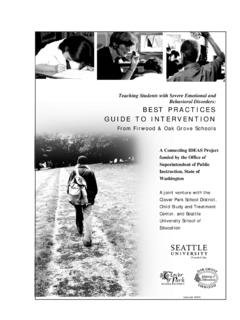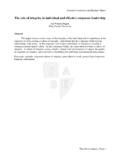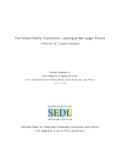Transcription of Reexamination of Senge s Learning
1 123 Systemic Practice and ActionResearch ISSN 1094-429X Syst Pract Action ResDOI and Learning : A CriticalReexamination of Senge s LearningOrganizationRaymond Caldwell123 Your article is protected by copyright andall rights are held exclusively by SpringerScience+Business Media, LLC. This e-offprintis for personal use only and shall not be self-archived in electronic repositories. If youwish to self-archive your work, please use theaccepted author s version for posting to yourown website or your institution s may further deposit the accepted author sversion on a funder s repository at a funder srequest, provided it is not made publiclyavailable until 12 months after and Learning .
2 A Critical Reexaminationof Senge s Learning OrganizationRaymond Caldwell Springer Science+Business Media, LLC 2011 AbstractFrom its inception the concept of the Learning organization has been identifiedwith a particular type of organization or new forms of organizational Learning . But it isoften forgotten that Senge s system thinking formulation of the Learning organization wasinseparable from an attempt to reformulate a new way of thinking about change agency andleadership in organizations. Here it is argued that Senge s Learning organization can bere-conceptualised as a partial fusion of systems thinking and Learning theories that leadsto a concept of organizational Learning as a form of distributed leadership .
3 However, theconcept is critically flawed because it cannot theorise the organizing practices by whichlearning to lead and leading to learn are shared or distributed in organizations. It isconcluded that Senge s under-theorized focus on distributed leadership consistentlyneglects issues of practice and issues of power. As such his work does not provide anexploration of the possibilities for increasing the dispersal of human agency, power,knowledge and autonomy within the thinking Organizational change Distributed leadership Action research AgencyIntroductionExplorations and critiques of Senge s concept of the Learning organization have oftenfocused on its status as theory of organizational Learning .
4 While consistently underplayingits underlying claims to identify leadership with Learning (Easterby-Smith1997; Driver2002; Smith2008). The Learning organization emerged in parallel with new leadership discourses which sought to create alternative models of change agency, leadership andorganizational change (Senge1990b,1996c; Bass1990,2000; Berson et ). Thesemodels were identified with more inclusive and participative modes of distributed lead-ership that were essential in ensuring the sustainability of change through new forms ofR.
5 Caldwell (&)Birkbeck College, University of London, London, UKe-mail: Pract Action ResDOI 's personal copyorganizational Learning (Gronn2002,2009; Harris et ). For Senge distributed orshared leadership was a post-heroic mode of leadership and a new type of change agency;it was not an attribute of individual leaders or expert change agents, but a process of systemlearning that could be shared by many people. In this sense distributed leadership appearedlearning-centred rather than leader-centric; in Learning organizations leadership of themany would take priority over leadership by the few (Senge1996c,2006).
6 But just as Senge s conjoining of organization and Learning was always profoundlyopaque, so too was his implicit identification of leadership and Learning (Elkjaer2001;Friedman et ; Ortenblad2007). Learning is intrinsically a highly problematicconcept in cognitive or psychological terms, and this is compounded if agency as anaction-theoretic concept of intentionality, or the ability to act, is identified primarily withthe capacity to learn. Learning as action may seem self-evident, but it raises enormousissues in specifying how individual Learning can become rational or effective in the faceof defence reasoning and self-deception (Argyris2004).
7 Nor is the problematic natureof Learning as action resolved by shifting it from the individual to the organization-level asa shared construct (Weick1991; Ortenblad2002; Contu et ; Marshall2009). If onedoes not know what organizational Learning is or how it is shared, then how can it bedistributed? Senge s embrace of distributed leadership appears to partly address this issueby treating Learning as a feedback process and leadership as a transmission mechanismwithin an overall normative system of shared meaning.
8 Learning is not an individualbehavioural attribute or capability but a double-loop cognitive Learning process that canbe shared; and if everyone can participate in shared Learning then, in principle, everyone iscapable of leading (Senge2006). The Learning organization therefore promises what theclassic humanist belief in Learning always cherished: that commitment to Learning willultimately set us free from compliance to blind this idealised vision of workplace empowerment in which leadership and changeagency appear to be a distributed function of shared Learning is deeply deceptive andideologically suspect (Wilmott1993; Driver2002).
9 Senge s reinvention of the classicorganization development (OD) tradition as a new paradigm of organizational Learning wasnot simply a shift away from the increasingly outmoded tools and instrumental techniquesof OD, and its marginal status as a subordinate organizational sub-function, it was also amove to reposition Learning as a higher order strategic activity within the remit of partly explains the enormous appeal of the Learning organization and its compatibilitywith new leadership discourses of transformational change.
10 For Senge (2007) Learning isnot an empowering practice or a process of participative Learning , but a vision: a sense ofshared Learning takes place within a normative system of meaning that is defined byleaders. Paradoxically, the idea of the Learning organization only appears to make sense ifit is enacted by leaders who have the power, knowledge or expertise to define whatlearning is, how knowledge is stored or transmitted, and how it is used to steer or set thedirection of future Learning .

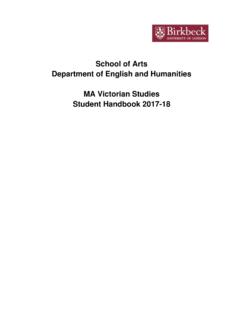
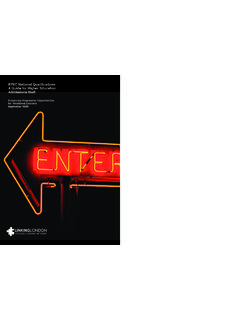
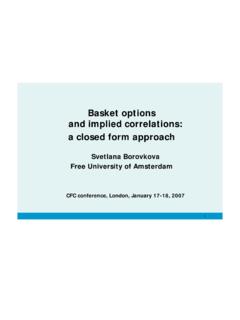
![[Your parent(s)/legal guardian(s) address] Entry …](/cache/preview/d/a/4/2/8/2/9/3/thumb-da428293fc86d7e7b8cebe1132189c1a.jpg)
